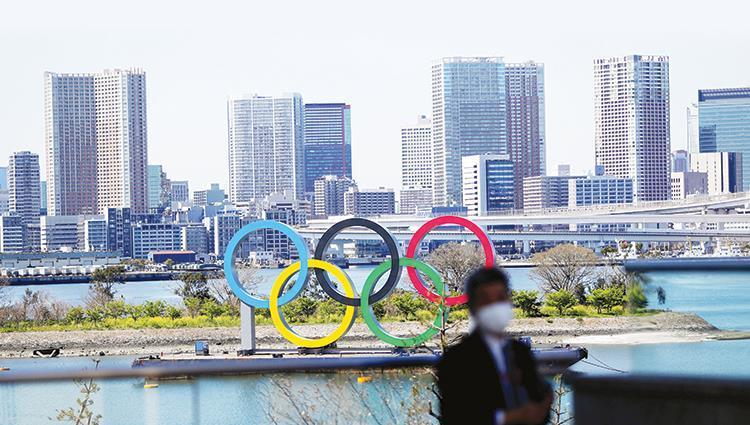Without a vaccine, Olympics face cancellation
Without a vaccine available, the Olympics could be forced to cancel for the first time in 76 years

Experts announced on Tuesday morning that it could take up to 18 more months to develop and release a vaccination for COVID-19. This is a big obstacle for many sectors, including the sport industry and the 2021 Olympic Games, which are only 14 months away.

“I hope vaccines and drugs will be developed as soon as possible,” Japan Medical Association President Yoshitake Yokokura told The Associated Press on Tuesday. “The key is a situation with the infections at that point. If the infections are under control only in Japan, it will still be difficult to hold the games unless the pandemic is over in the rest of the world.”
RELATED: Tokyo Olympics scheduled to start July 23, 2021
The Games were originally scheduled to begin in July 2020 but were rescheduled to the following summer this March. However, the Games couldn’t handle another postponement. If the event can’t go ahead on the new date, they’ll be cancelled entirely according to Tokyo 2020 president Yoshiro Mori. For now, organizers remain optimistic about the future of the event.
The Games haven’t been cancelled in 76 years
If these Games couldn’t go ahead, this would be the first cancellation in nearly eight decades–with previous cancellations coming as a result of world wars. The Tokyo Olympics would be the first cancellation during peaceful times.
A huge blow for track and field
Athletes in major league sports, like basketball or hockey, have consistently lucrative seasons, but for runners, the Olympic year is when they stand to make some serious cash. There are usually bonuses based on qualifying and placing at the Games, and generally more sponsorship dollars to go around. The Olympics are the one time when the masses tune into the sport.
RELATED: USATF CEO made $4.2 million in 2018
Olympian compensation
A recent study conducted by Global Athlete and Ryerson University’s Ted Rogers School of Management looked at Olympic commercialization and athlete compensation. The five largest pro sports leagues in the world pay between 40 and 60 per cent of their revenues to their athletes.
Global Athlete in partnership with Ryerson University and the Ted Rogers School of Management, announces the results of a study on Olympic commercialization and player compensation.
Bottom line: Athletes deserve collective bargaining!@Olympics @Paralympics pic.twitter.com/2e0aBzBy7h
— Global Athlete (@GlobalAthleteHQ) April 23, 2020
The IOC, on the other hand, pays out just 4.1 per cent of its annual revenue of over $1.4 billion to athletes. The study also points out that the money athletes receive from the IOC comes from grants, scholarships and awards, which are all non-negotiable totals. With runner’s margins already small, removing the Olympics makes them even smaller. For those whose livings are made entirely from the sport, this could be a difficult year.


